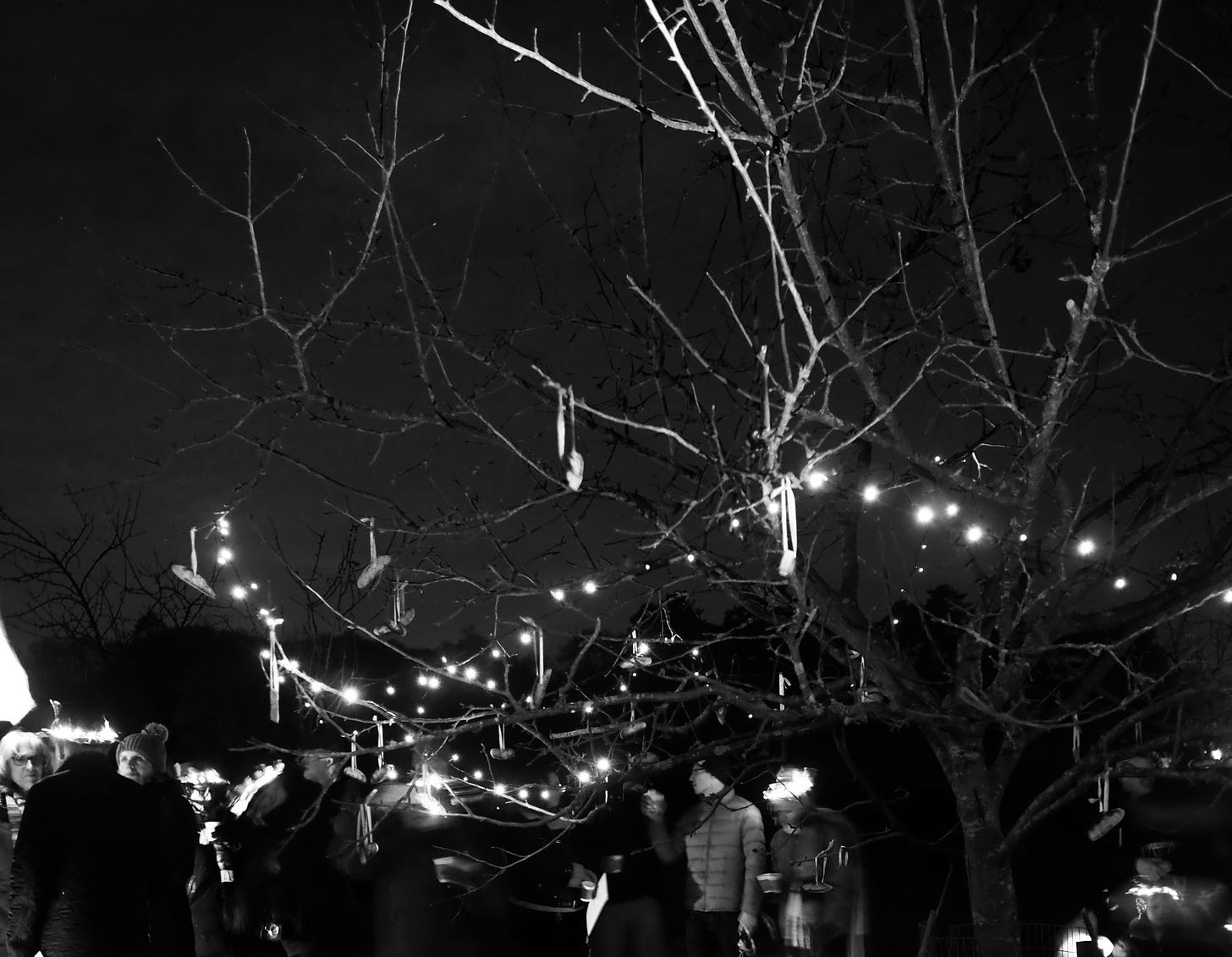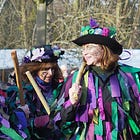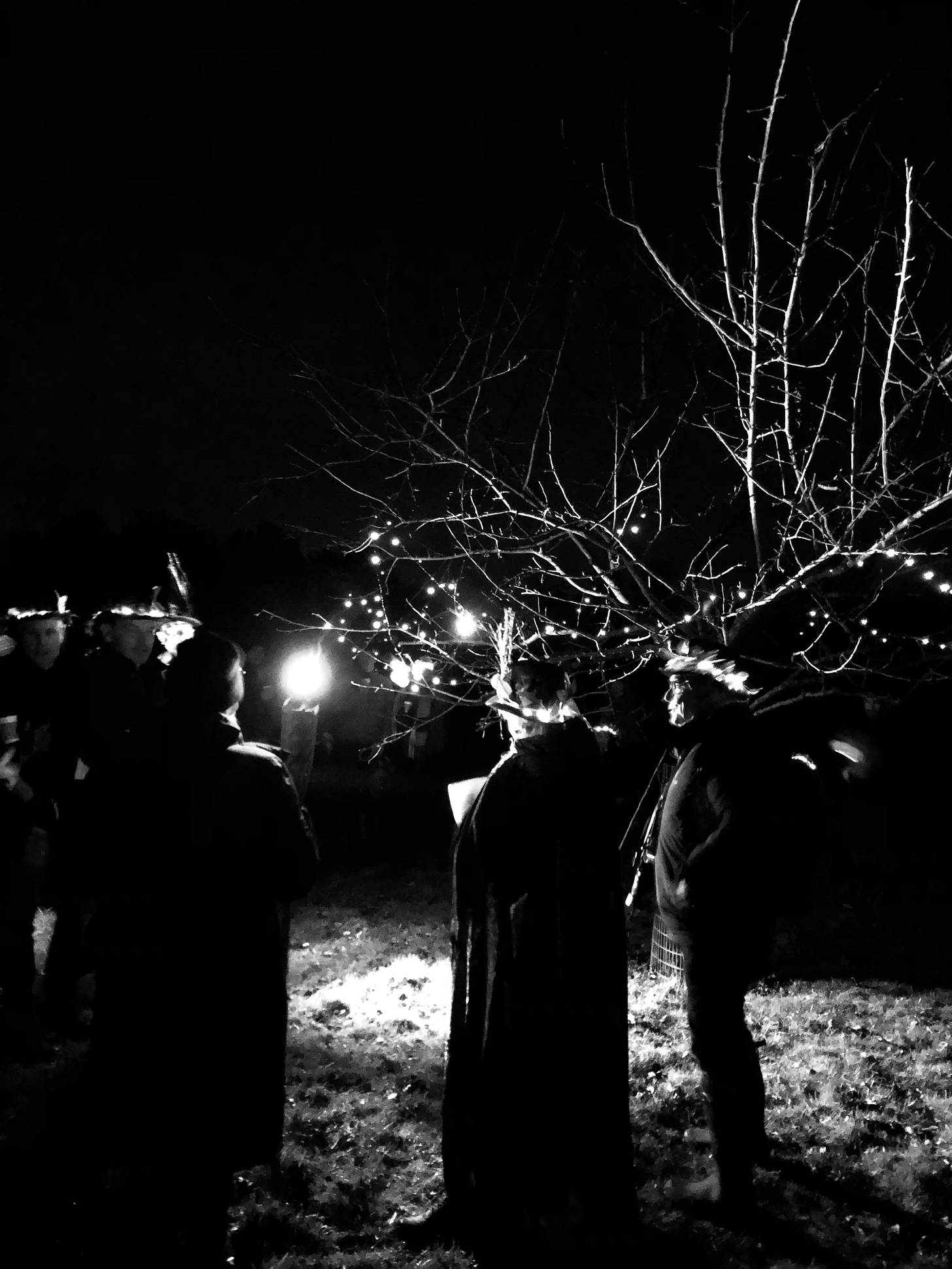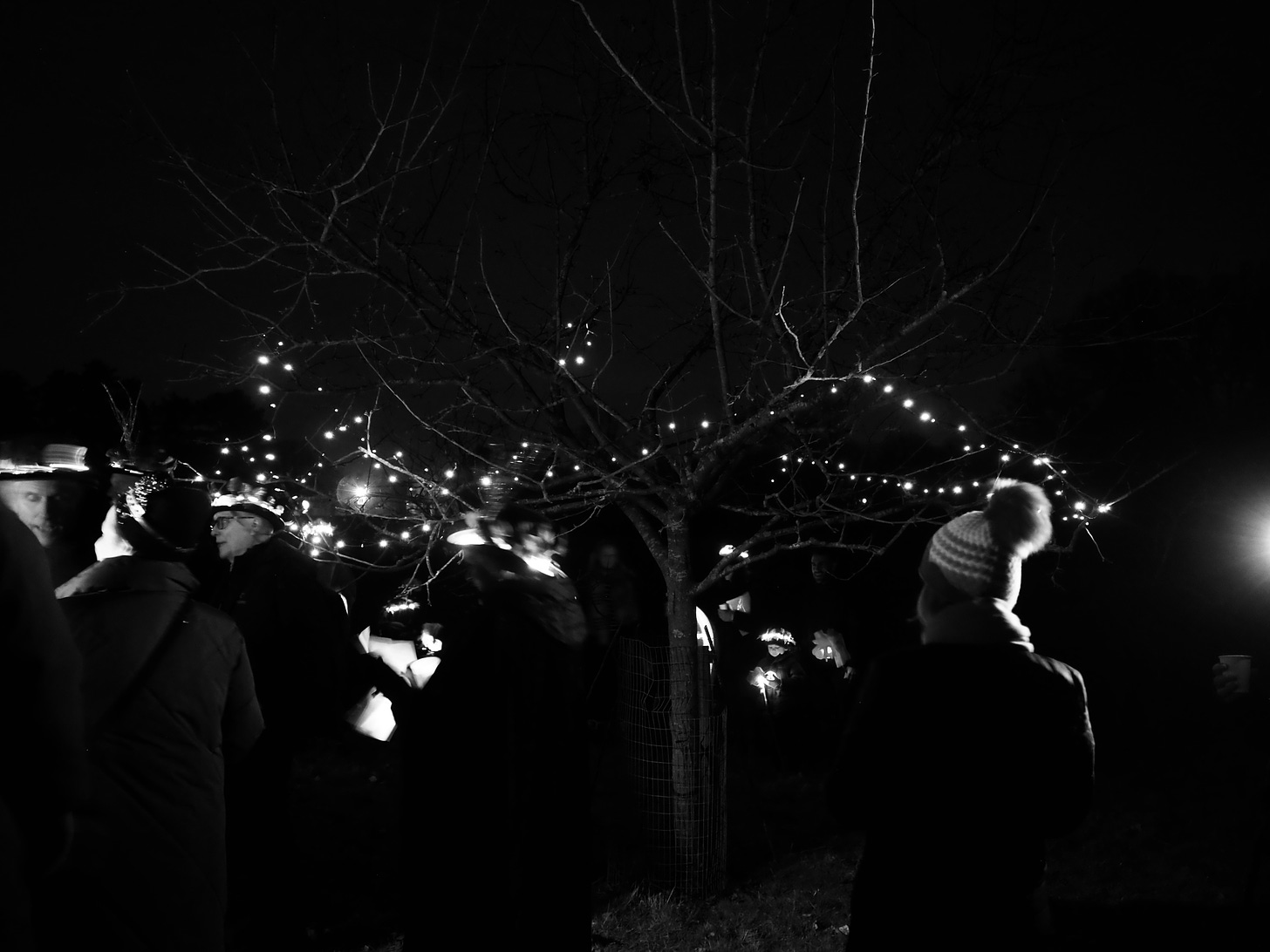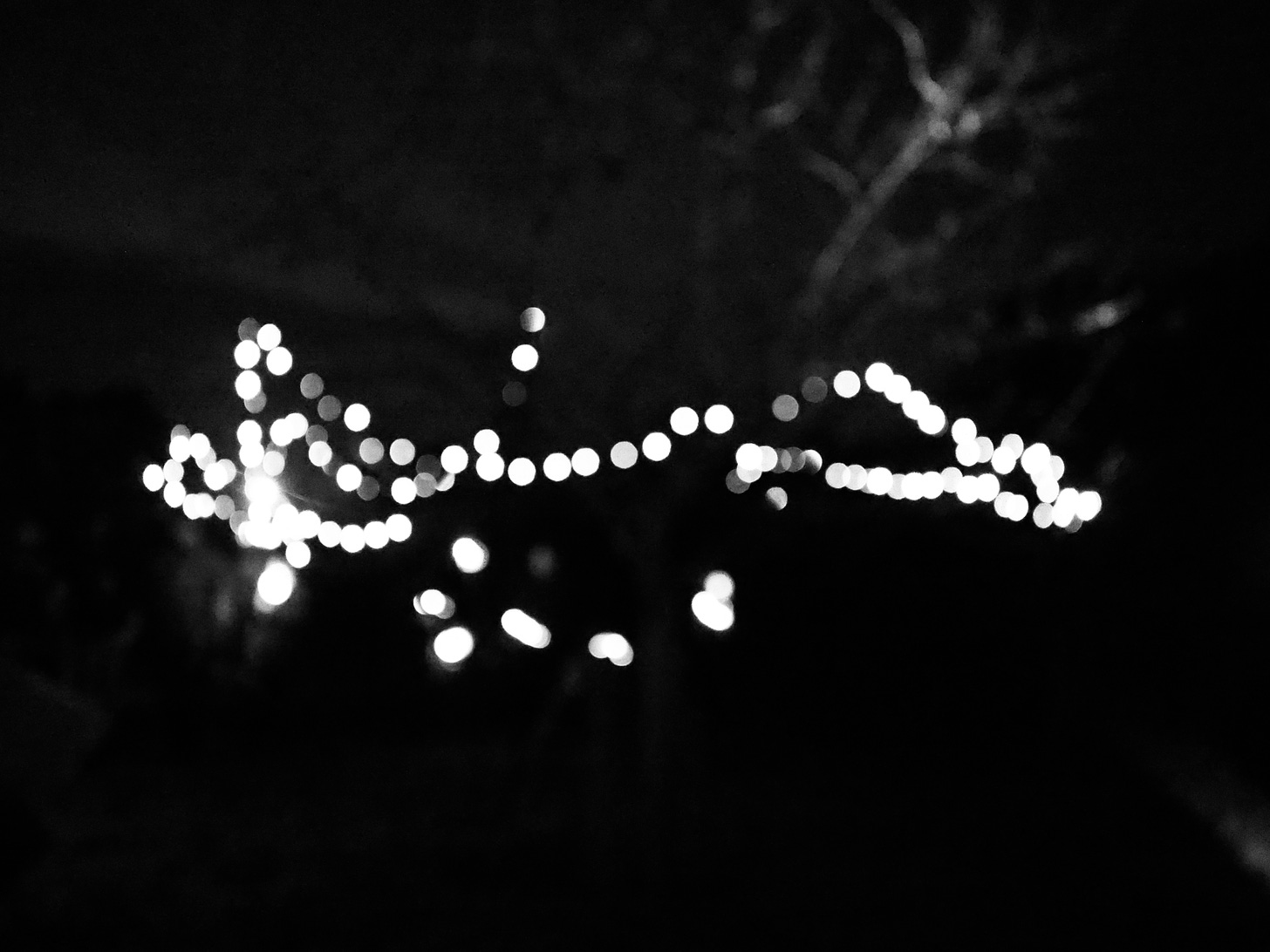Bundled up in hats, scarves and multiples layers, we gingerly made our way through the narrow, wet path, lit only by our head torches and hoping the mud would not claim our behinds. Up ahead we could hear the gentle hum of merriment and saw a tree festooned with lights. We had arrived in the community orchard and were ready to wassail.
Apple Wassailing is an old custom that used to take place on Twelfth Night, but in 1752, England adopted the Gregorian calendar and dates were adjusted by 11 days. Although Twelfth Night remained on the 6th January, traditionalists regard the 17th January (Old Twelfth Night) as the proper day for Wassailing, and most Wassails were held around this time. It is said that most villages had their own Wassailing song and the tradition has survived down the centuries, although mainly in the West country areas of Somerset and Gloucester. With the revival of interest in traditional orchards and the growth of community orchards, Wassailing has become a part of the calendar once again.
The word ‘Wassail’ derives from the Anglo Saxon ‘waes hael’: to be whole; in good health. In olden days the Wassailers were made up of farmers, farm workers and villagers who would go from orchard to orchard in a noisy procession.
The tradition of wassailing is to wake up the apple trees and scare away evil spirits to ensure a good autumn fruit harvest. Ceremonies vary, but all have similar core elements.
A Wassail King or Queen will lead the song or processional tune to be played around the chosen tree. Usually the best or oldest tree is chosen to represent the orchard. The singing is to wake the trees from their winter slumber and to welcome the good spirits. Cider is then poured on the roots of the tree, and either toast or cake, often soaked in cider, is placed in the forks of the tree or hung from the branches for the robins (they are thought to be the guardians of the orchard). An incantation is then recited. The trees are then rapped with sticks by the assembled crowd who will also sing, shout, bang pots and pans or dustbin lids, to chase away the bad spirits and ensure a good fruit harvest for the coming year. To finish, there’s usually more singing (and often some morris dancing) followed by mulled cider or apple juice.
Wassailing is an old English folk tradition, but I see it as something that is just as relevant now as it was 400 years ago, just with a different focus. Although we no longer depend on local orchards to sustain communities through harsh winters, Wassailing is a way of increasing social engagement and encouraging interest in growing food, particularly in community orchards. I think it’s also part of a shift in folk culture. Boss Morris (an all female morris side with a progressive vision of morris dancing) sums it up well when they describes themselves as “part of a wider movement which is reclaiming the narrative around our culture and past and how we feel about ‘England’ and ‘Englishness’.” They go on to say their dancing is a “modern vision of a traditional folk dance while actively rejecting themes of nationalistic values.” I love this philosophy: connecting with history but reshaping predefined customs and making it progressive and inclusive.
Yesterday we went to a Wassail in the evening, at a community orchard 5 miles away. I love gathering to bless the apple trees in this slightly peculiar way, but we also had a second much smaller wassail at home today. When we moved into our home last summer we discovered a Cox’s apple tree (bearing no fruit). It was the sole fruit tree in the garden, which I’ve since learned is not a good thing if you’d like it to produce fruit. So at the beginning of this year we bought a young crab apple tree – and thank you to the reader here on Substack for the information about needing a pollinator for the Cox. Now we have two fruit trees, how could we not bless them?!?
We followed the same Wassail ceremony, but on a much smaller scale. I’ve never been to a Wassail that happened on Old Twelvey Night, and I don’t think it matters. Today seemed like a good a day as any, so we headed into the garden with our pots, pans, cider and toast. It was short and sweet and of course we now have high hopes for the autumn. Fruit or no fruit, I do love the incantation and I hope that in some way we sent some good vibes to the whole garden – it really needs all the help it can get.
Tree Blessing
(Wassail incantation)
May your roots grow strong and low,
To drink from waters deep below,
And as your branches reach up high,
May you drink from the light of sunlit sky.
Come forth now from Winter’s slumber,
To bring forth leaves in countless number,
And upon your branches blossom unfurl,
To bring forth fruit from every bough.
Laden with fruit, and always green,
Now and forever fruitful be,
Accept our offerings, that in thanks we give,
May you grow in joy; long may you live!
Wassail!! (with the response “Drink Hael!!”)If you’re interested in holding your own Wassail (even one tree counts!) you’ll find the lyrics to the Old Fox Wassail in the post below. You can also find the melody for it in the fantastic version by The Watersons beneath that. Or why not put together your own updated version with words that hold meaning for you.
If you’re interested in getting involved with your own Local Community Growing Project, here are a few UK links:
The Orchard Project (UK wide)
Racial Justice and Community Orchards
East of England Apples and Orchards Project
The Orchard Network (UK wide)
Community Land Advisory Service (UK wide, managed by Social Farms & Gardens).





